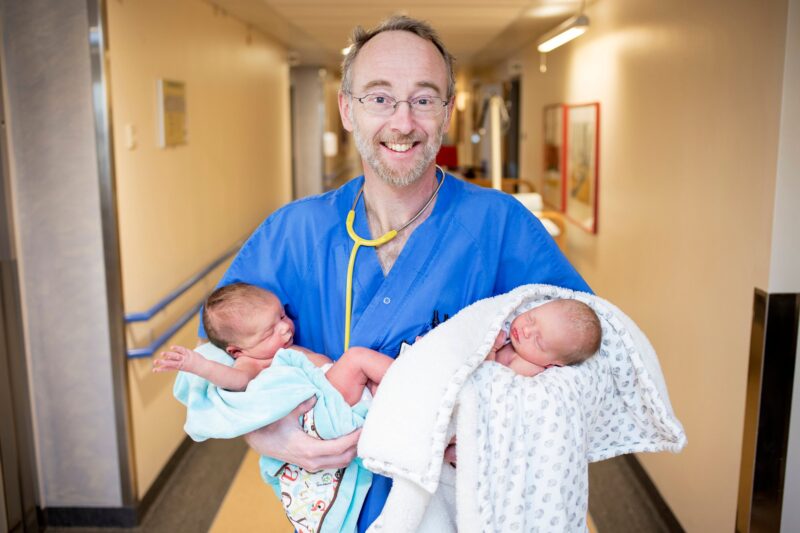by Arjun Walia (excerpt)
A letter to the editor published in the New England Journal of Medicine titled “Open Schools, Covid-19, and Child and Teacher Morbidity in Sweden” has found that:

“Despite Sweden’s having kept schools and preschools open, we found a low incidence of severe Covid-19 among schoolchildren and children of preschool age during the SARS-CoV-2 pandemic… No child with Covid-19 died… Among the 1,951,905 million children who were 1 to 16 years of age, 15 children had Covid-19, MIS-C, or both conditions and were admitted to an ICU, which is equal to 1 child in 130,000.”
It was published by Jonas F Ludvigsson a paediatrician at Örebro University Hospital and professor of clinical epidemiology at the Karolinska Institute.
The study also showed that “fewer than 10 preschool teachers and 20 schoolteachers in Sweden received intensive care for Covid-19 up until June 30, 2020 (20 per 103,596 school teachers, which is equal to 19 per 100,000).
As compared with other occupations (excluding health care workers), this corresponded to sex- and age-adjusted relative risks of 1.10 (95% confidence interval [CI], 0.49 to 2.49) among preschool teachers and 0.43 (95% CI, 0.28 to 0.68) among schoolteachers.
In a Karolinska Institute press release, Ludvigsson indicated he was hopeful about the results.
“It is very gratifying that serious COVID-19, defined here as needing treatment in an intensive care unit, is so rare among children despite schools being open during the pandemic,” he said.
“The next step will be to follow up the children who were treated in an intensive care unit for COVID-19 to see if they have recovered fully. My gut feeling is that children who have been seriously ill because of MIS-C seem to recover fully eventually.”
After he published this piece, an article published in the British Medical Journal on the 18th of February by Ingrid Torjesen states the following:
The Swedish government has said that it will strengthen laws on academic freedom after a leading Swedish academic announced that he was quitting his work on covid-19 because of an onslaught of intimidating comments from people who disagreed or disliked his research findings….
After the letter’s publication he was bombarded with angry messages through social media and email criticising the study and inferring that it and Ludvigsson were representative of the country’s covid-19 containment strategy.
The experience has taken its toll on Ludvigsson. He told the journal of the Swedish Medical Association (Lakartidningen) that for a week he woke up at 3 am every night and could not get back to sleep and that he had now lost his appetite for covid-19—both when it comes to speaking out and researching. He has decided to quit researching and debating covid-19.
He is trying to put the experience behind him and has said that he will not talk to the media about what happened. However, he told The BMJ that, although the findings were published in a research letter, this was “an actual study” that underwent formal external peer review, including statistical peer review, and the manuscript was revised four times before it was published.
Intimidation and threats against academics have risen with the growth of social media, and uncertainties and diverse opinions about covid-19 have added to the situation. In response, Sweden is planning to provide increased support for academic freedom through an amendment to its Higher Education Act.
Matilda Ernkrans, Sweden’s minister for higher education and research, told The BMJ:
“It is deeply concerning when academics are threatened to the extent that they don’t have the courage to keep on doing their job.
“This is not a new phenomenon, but we have seen an increase of threats against academics related to research on the coronavirus. When people are silenced, it’s a threat against the freedom of speech and our democracy.
“To strengthen academic freedom, the Swedish government has proposed a new amendment that points out that education and research must be protected to enable people to freely discover, research, and share knowledge.”
Ole Petter Ottersen, president of the Karolinska Institute, told The BMJ that he found the increase in threats and harassment towards researchers very worrying.
“A tough debate and a diversity of opinions based on facts and evidence are necessary elements of science and public discourse, but hateful and scornful accusations and personal attacks cannot be tolerated.
“We already see that researchers retreat from the public debate after being threatened or harassed, and in my own institution a leading researcher just decided to give up his covid-19 research for the same reason,” he added, referring to Ludvigsson.
Given that the Karolinska Institute seems to be the focus here as well, I thought I’d mention that professor Anna-Mia Elkström, an epidemiologist from the Institute and professor Stefan Swartling Peterson, have gone through the data from UNICEF and UNAIDS, and come to the conclusion that least as many people have died as a result of the restrictions to fight COVID as have died of COVID directly.
Related posts:
Views: 0
 RSS Feed
RSS Feed















 March 11th, 2021
March 11th, 2021  Awake Goy
Awake Goy  Posted in
Posted in  Tags:
Tags: 
















